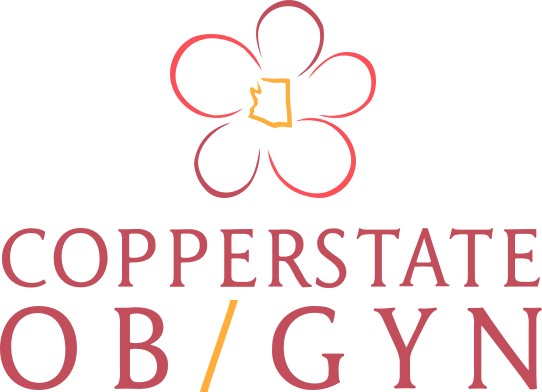In March 1992, Dr. Karen Addis and her husband Dr. Walt Patton opened Copperstate OB/GYN, a premier women’s healthcare facility focused on providing exceptional care and guidance to women of all ages. This year, Dr. Addis & her team celebrate 30 years of empowering and supporting women throughout every stage of life by launching I Am Woman: A Celebration of Womanhood.
Infertility & Motherhood
A particular part of womanhood that is spoken about often and highly celebrated is motherhood, of course. From a young age, women find themselves being cast in the role of a mother. From being gifted baby dolls as toddlers and playing ‘house’, to learning about our reproductive systems in grade school health classes, pregnancy and motherhood are frequent topics of conversation continuing into adulthood.
However, a side of womanhood that is not often acknowledged and discussed is infertility.
Infertility in the United States
“Primary infertility is the inability to get pregnant using natural methods in one year under the age of 35, or in six months if over the age of 35,” shared Dr. Carranza-Chahal in a recent Facebook Live on Tucson Women: Healthy Living Group.
Fertility issues affect over 10% of women in the United States every year, yet continues to be a taboo topic among most. I Am Woman: A Celebration of Womanhood aims to normalize the conversation around infertility and empower women to write their own definition of being a mother, educate and inspire our youth, and share their stories.
Causes of Infertility
Infertility can be caused by a number of factors, from structural problems of the reproductive system such as polyps and scarring in the uterus, to menstrual cycle problems such as failure to ovulate.
“One of the most common causes of infertility is due to ovarian and diminished ovarian reserves which means you aren’t ovulating regularly enough, or due to your ovarian reserves diminishing as you get older or from longterm chronic illnesses,” shared Dr. Carranza-Chahal on her Facebook Live.
Fertility issues can also be a result of a number of diseases and health conditions including endometriosis, polycystic ovary syndrome (PCOS), and autoimmune disorders. There are also lifestyle and environmental factors that can increase the likelihood of fertility issues such as substance abuse and obesity.
Redefining Motherhood
Being a mother does not have to look the same for everyone. We encourage women to find and embrace motherhood in different ways in their daily lives. Whether that’s being a nurturing figure as a friend or partner, or to mother yourself both physically and emotionally. Motherhood comes in different forms and each should be celebrated and acknowledged the same.
Educating and Empowering Our Youth On Infertility
One of the most important ways to begin normalizing the conversation around infertility is to start the discussion and ensure awareness during adolescence. As young women learn about their bodies, menstrual cycles, and reproductive systems, infertility should be part of the conversation. It’s important for children to grow up with the understanding that infertility issues are not uncommon and should not affect their sense of womanhood, femininity, or self-esteem.
Find Comfort in Uncomfortable Conversations
Despite infertility affecting so many women, the conversation surrounding it is not one that is openly talked about, often even seeming off limits as a topic. Encouraging women to share their journeys with infertility and listening from a perspective of acceptance and neutrality as opposed to overwhelming sympathy can encourage others to speak up and join in the conversation.
It is our hope that women can find comfort in having these conversations that may feel uncomfortable at times, until they are normalized.
I Am Woman: A Celebration of Womanhood
Each month, we will publish a blog post highlighting amazing aspects of the female body that should be celebrated, as well as health care and treatments to support various aspects of our growth, development, and health. In addition to our monthly blog posts, we’ll be hosting Facebook Live sessions and giveaways each month in our Facebook group, Tucson Women: Healthy Living, that will celebrate womanhood and test followers’ knowledge!
Are you looking for an OB/Gyn you can trust in the Tucson area? Let us support you in achieving true health and wellness. Call (520) 721-8605 to book your appointment today.

